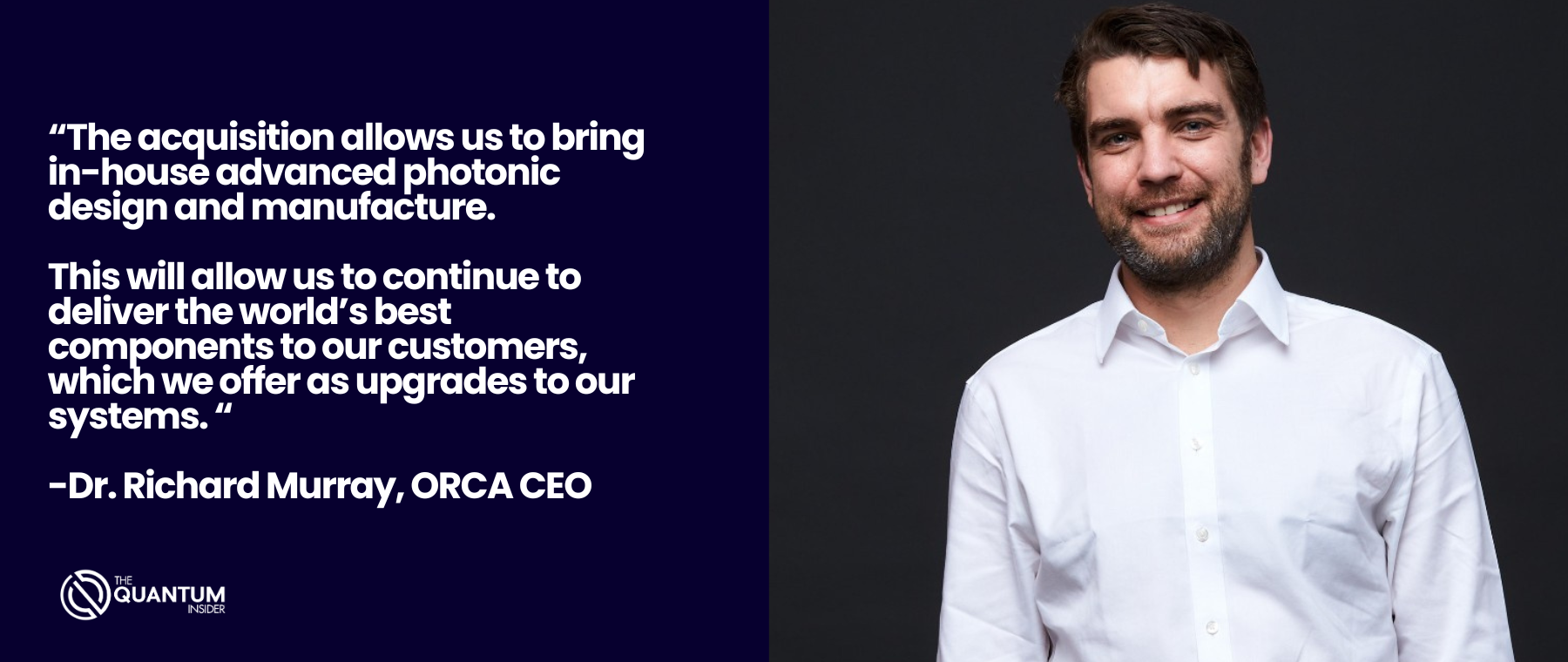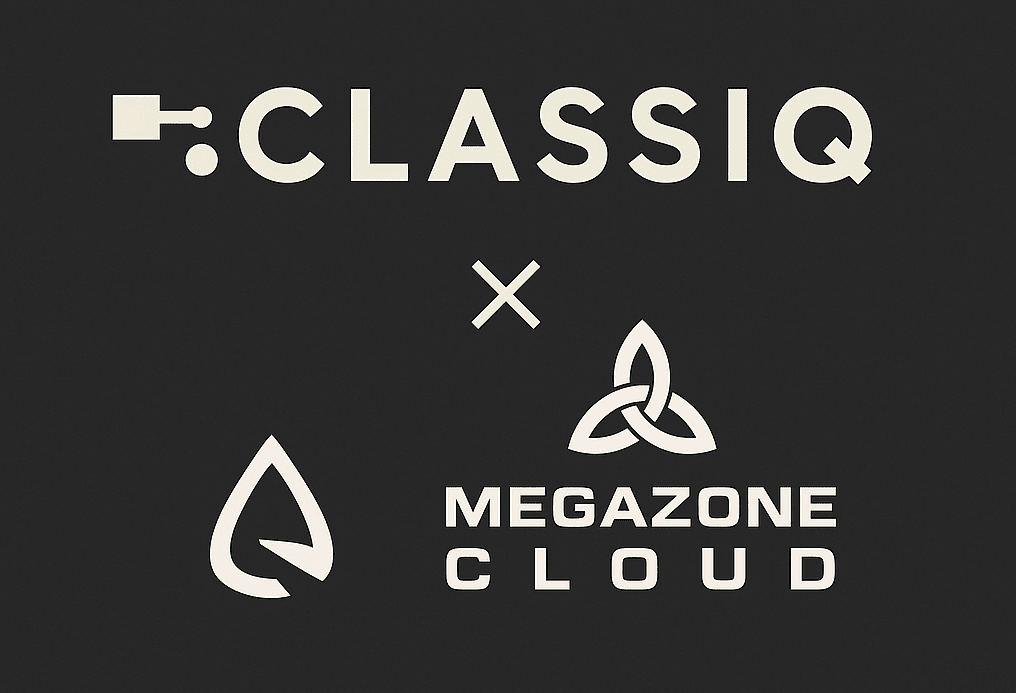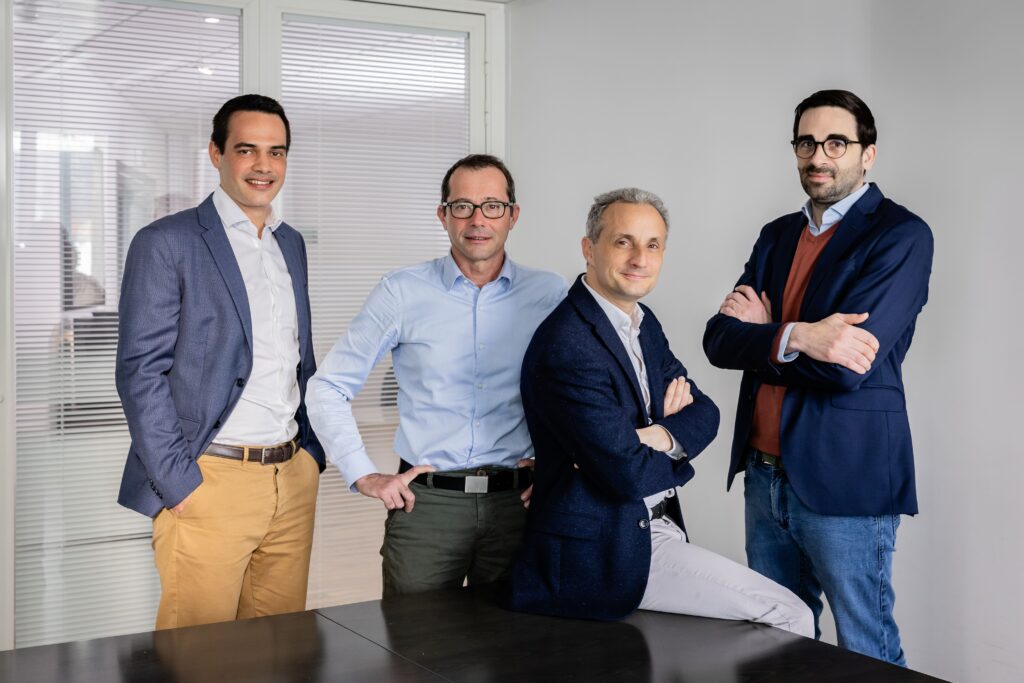ORCA Computing announced it is acquiring the Austin, Texas-based Integrated Photonics Division of GXC. The division is one of the U.S.’s top advanced photonics companies, delivering solutions to top U.S. commercial and government entities including the Defense Advanced Research Projects Agency (DARPA). As ORCA gains momentum of market success, this acquisition is expected to bypass years of investment in and exploration of traditional integrated photonics materials. The move also positions the company at the forefront of the race to deliver powerful, scalable quantum computers.
In an email interview, The Quantum Insider (TQI) asks Dr. Richard Murray, CEO and co-founder, ORCA Computing, for a deep dive into the reasons behind and benefits of the acquisition.
TQI: What are the top line benefits for ORCA from acquiring the Integrated Photonics Division of GXC?
Dr. Richard Murray: This lets us bypass about five years of investment, giving best in class photonics now, not eventually. It also releases ORCA from the silicon development knots that are tying up our platform rivals. And it will accelerate the journey to near-term commercial use as the Texas-based integrated photonics division of GXC brings deep experience, particularly from working closely with the US Defence Advanced Research Agency,

TQI: How will clients and the quantum community benefit?
Murray: The acquisition allows us to bring in-house advanced photonic design and manufacture. This will allow us to continue to deliver the world’s best components to our customers, which we offer as upgrades to our systems. Customers will be able to upgrade their systems with the most advanced photonics. The acquisition of the integrated photonics-related assets brings a suite of skills and technologies. These cover the design, manufacturing, packaging and application of novel integrated photonic devices. It positions ORCA to continue delivering on-premises, near-term systems to the market while accelerating the development of scalable, commercially viable error-corrected systems in the longer term.
TQI: How does this fit into long-term plans for ORCA?
Murray: ORCA believes that a combination of integrated photonics and optical fibre is the key to scalability and getting to commercially useful quantum computing fast. It is clearly crucial for all modalities, not just photonics. While integrated photonics is very exciting, it is clear that silicon photonics alone does not meet the requirements for scalability. There have been many millions of dollars spent, but critical levels of loss are still a problem. We are short cutting that expense and failure by delivering ultra-low loss hybrid materials into our photonic architecture. These hybrid materials are less mature than silicon, but are at an inflection point. The early research work has been proven out through decades of university research, and we believe they are at a perfect timing for rapid industrialised to offer the best route to fault tolerance.
TQI: What are the intangible benefits from the acquisition?
Murray: This will be a profound change and impact everywhere. We want to be part of that wave, not caught by it. The combination of our core modular approach to quantum computers, which lends itself to integrating promising new developments, and the acquired expertise known for delivering advanced photonics solutions, will be an unbeatable benefit.
TQI: How did this collaboration first come about?
Murray: It was a proactive search by ORCA to meet a strategically important objective. Every quantum company is relying on the development of a new supply chain. For these technologies, it became obvious that we should be bringing this key development capability in-house. We knew what we were looking for and found it in Texas. This acquisition also allows us to work better with our suppliers, ensuring that everything in our systems is state-of-the-art. Many of the companies we work with are themselves startups developing systems to integrate. We can help their own roadmaps in a circle of mutual benefit.
TQI: Is there a distant ambition that excites you about photonics?
Murray: What is particularly exciting is the promise that integrated photonics will develop interconnectivity between systems and computers. Were you specifically looking to make your acquisition in the US? Our search was not to do with geography but excellence. But we do value the advantage of being in the US, particularly the huge pool of talent and how it builds on what we have. While the UK is excellent at innovation and ideas, when it comes to scaling we still look to the US.
TQI: What does the acquisition mean for ORCA’s journey?
Murray: This is a very important moment for us. It is unusual for a start-up to make a US acquisition, but ours reflects rapid growth. We have now sold five quantum computers as well as significantly progressed quantum architecture. ORCA has a clear vision for delivering robust and useful scalable quantum computers, with photonics at their heart. We are now in position to see that vision realised.
TQI: When will the new acquisition have an impact?
Murray: It has already by pushing us beyond commercial off-the-shelf components to achieve scalability. The first time it has a practical impact on our technology stack will be with spatial switches, allowing them to operate at faster speeds and provide output at lower costs. New integrated photonics components will also be incorporated into the ORCA PT-3 system, which is due for commercial release next year.
Image: ORCA Computing
If you found this article to be informative, you can explore more current quantum news here, exclusives, interviews, and podcasts.
















